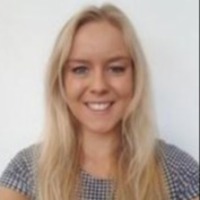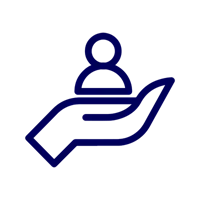
Sarah Barron
PhD student (Bioelectronics) at University of Cambridge
Do what you love, not what you think others would like you to do.
About Sarah...
Who am I?
"Hi, I'm Sarah! I am from a working class background and am the first in my family to pursue education/University. I am a PhD student at the University of Cambridge and I am also passionate about scientific outreach and raising awareness for mental health and Neurodiversity. I am diagnosed with ADHD and dyslexia and am passionate about breaking down barriers and helping people realise their potential. I work closely with local schools as a STEM ambassador to (hopefully) help to inspire and give advice to young adults interested in pursuing STEM careers. Feel free to get in touch!"
What do I do?
"I work at the interface of biology and engineering. My work involves making biomedical devices which can be implanted into the body or used to monitor cells in the lab. During my Masters project, I worked in a lab that implants these devices into the brain and spinal chord to treat injury and conditions such as chronic pain and epilepsy. I love PhD because it is so diverse- I get to work in the lab, write blogs, teach in schools, work in industry, work as a big team and also by myself. Its very creative and you get to solve new problems almost every day. Starting salaries for PhDs (If funded) start from £15k/year. Postdoctoral positions, once graduated from a PhD start from around £30k/year but are much higher if you go into industry. "
How did I get here?
"I was lucky enough to have a few teachers/lectures who inspired me a lot. I originally thought I wanted to pursue medicine and become a doctor, but after some work experience I realised I was more interested in the science behind medicine and creating new solutions to medical problems. It's also important to consider your personality type- I personally couldn't handle the emotional side of treating very sick people and was more suited to helping behind the scenes in the lab! I also did a 4month internship in a bio tech/consultancy company, but also realised that this job wasn't for me- I prefer prefer to keep my hands busy and do practical work, rather than staying behind a desk. I think the take home here, is to try and get work experience in the fields you think you're interested in, consider your personality type and remember that is okay to change your mind (multiple times!)."
The life I live
"I love sports. Sport has always been part of my life and is my second passion (apart from science). I have competed regionally for swimming and nationally for powerlifting, bodybuilding and cheerleading. What ever hobby you have, always make time for it alongside your studies. Its so important to have a balance and to allow yourself some time to destress and let your mind unwind. I also really enjoy driving and have been on track days for racing GoKarts and sports cars. Despite having dyslexia, I really enjoy reading and writing. I write both scientific and non-scientific blogs and run multiple social media pages!"
My typical day
"My work as a PhD student is very diverse - Every day is different! Some days are very quite and I spend it reading scientific papers, answering emails and planning new experiments. Other days I am in the lab creating microelectronic devices, looking after cells or imaging with powerful microscopes. Other days I work with collaborators from industry or start-ups to come up with new projects. Other days I am writing up my results, or short creative pieces for a blog or magazine. Other days I travel to schools to give lectures or workshops. I also supervise and mentor students in the lab and help them to finish their projects. "
My qualifications
"A levels: Biology, Chemistry, Maths, PE and REBSc: NeuroscienceMSci: Brain ImagingMRes: Sensor Technologies I took a gap year after my A levels to get some work experience, then during my undergraduate degree I undertook an internship and also volunteered to teach kids STEM related activities. My PhD included an introductory masters year, which involved rotations around different labs - this is a great option if you are not exactly sure which research field you want to go into."



